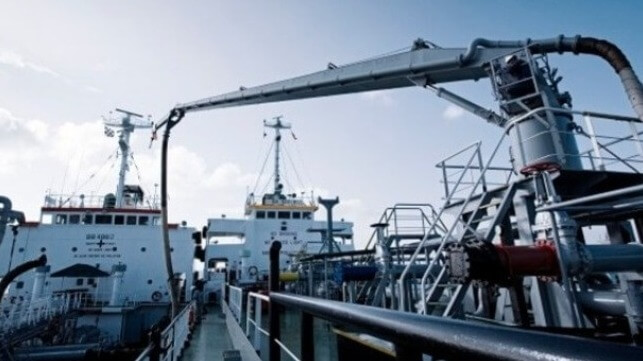Singapore Suspends Glencore’s License for Selling Contaminated Fuel

Singapore’s Maritime and Port Authority concluded its investigation into the 2022 fuel contamination incident that impacted more than 200 vessels that fueled in the world’s largest bunker market. While finding no evidence that the suppliers had intentionally contaminated the HSFO being sold to vessels, they concluded that one of the suppliers, Glencore Singapore, had continued to supply the contaminated fuel after tests uncovered the contamination. As a result, the MPA is taking action against Glencore suspending its bunkering license for two months.
“Glencore contravened the terms and conditions of its bunkering license in failing to ensure that no bunkers supplied by it were contaminated,” announced the MPA in its final report detailing the investigation. They found that a total of 24 vessels were supplied with the affected fuel by Glencore between March 22 and April 1, 2022, with at least three vessels having reported issues with their fuel pumps and engines.
Concerns over a potential fuel contamination issue began to surface in early March after vessels began experiencing fuel system failures in their auxiliary engine which resulted in a loss of power and propulsion. Fuel testing and inspection laboratory Veritas Petroleum on March 11 issued a warning about a potential problem warning vessels to undertake additional confirmation testing. The MPA reports that it was notified on March 14 that a number of vessels had been supplied with contaminated fuel and VPS along with another fuel testing organization, Maritec, issued additional warnings as well as alerts from Lloyd’s Register FOBAS to ship owners and operators all happening during late March.
During its investigation, the MPA found that Glencore Singapore had engaged a fuel oil testing laboratory and was advised between March 21 and 23 that the results showed contamination. Samples taken from fuel oil Glencore was selling contained concentrations of COC (Chlorinated Organic Compounds) not commonly present in bunker fuel. The MPA reports that despite being made aware of elevated levels of the contaminant, Glencore continued to supply bunkers blended with the contaminated fuel for an additional 10 days till April 1.
The MPA will suspend Glencore’s bunkering license effective from August 18, 2022. “MPA has also asked Glencore to improve its internal procedures to ensure that prompt action is taken in future when it becomes aware of, or reasonably suspects, any irregularity in fuel quality.”
The investigation used sophisticated forensic fingerprinting analysis of the fuel samples. As a result, the MPA was able to trace the fuel to supplies from Glencore and PetroChina International (Singapore) and follow the trail to a single load of fuel. They determined that the contaminated fuel had traveled on a tanker from the Port of Khor Fakkan in the United Arab Emirates.
While PetroChina had also been supplying the contaminated fuel to vessels in Singapore, the investigation determined that PetroChina stopped supplying the fuel as early as March 19. Because the firm had taken prompt action after receiving the test results, the MPA is not taking action against PetroChina.
The contaminant found in the recent incident however can not be detected by standard ISO and ASTM procedures. Glencore had tested the fuel and found it in compliance with the ISO standards. The testing laboratories used additional methods to ultimately confirm the high levels of chlorinated hydrocarbons. At the time, VPS reported that it believed 140,170 metric tonnes of fuel had been contaminated with a value of $120 million.
With the fuel market in Singapore selling approximately 50 million tonnes annually, the MPA is using this incident to remind all licensed bunker suppliers to adhere strictly to the terms and conditions of their licenses. They maintain quality fuel assurance measures for the market reporting that over 1,300 samples are tested annually. The MPA is also taking efforts to strengthen its fuel quality checks.
